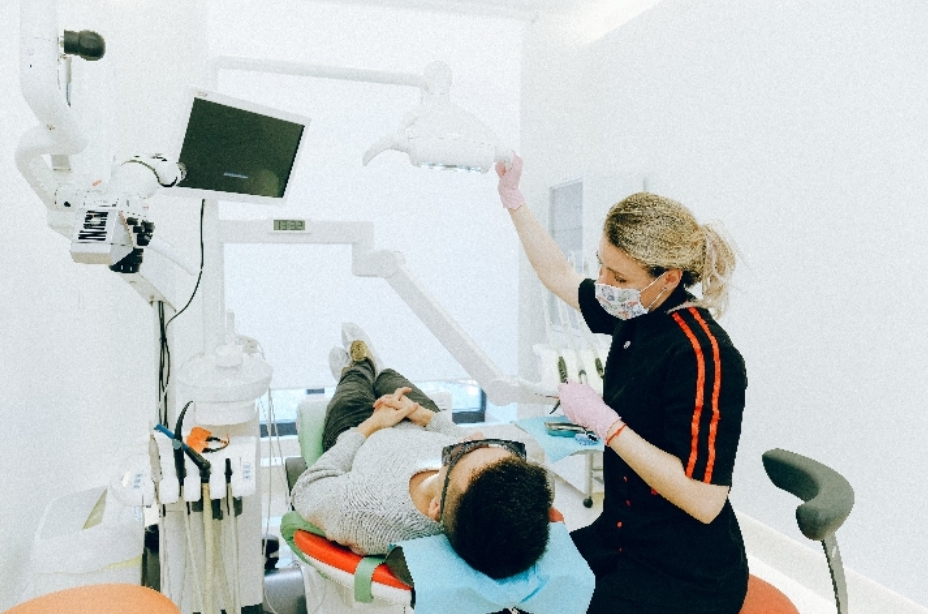After the Covid-19 pandemic, many states, like North Carolina, are improving their healthcare systems. North Carolina has recently expanded Medicaid, allowing around 600,000 low-income individuals to access health insurance, which is a big step forward. Clayton, the fastest-growing town in Johnston County, North Carolina, deserves a special mention here as it is home to many excellent healthcare facilities.
Despite advancements in healthcare across the country, oral care often remains a neglected facet, although it plays an integral role in overall well-being. A healthy mouth is not just about a bright smile; it plays an integral role in our ability to eat, speak, and socialize without discomfort or embarrassment. Dental issues, if left unchecked, can lead to more serious health complications. While personal oral hygiene is key, the guidance and expertise of dental professionals, particularly family orthodontists, are invaluable in maintaining optimal dental health. In this blog, we’ll discuss common dental issues and how to prevent them effectively.
Importance of Professional Help For Dental Issues
Highlighting the necessity of regular dental visits is essential before discussing dental issues. These check-ups are more than routine; they provide an early glimpse into potential problems. For instance, they can identify issues like misaligned bites or teeth before they escalate. These might seem minor, but if overlooked, they could hamper proper teeth cleaning, resulting in cavities and gum problems. Luckily, Clayton has no shortage of such skilled professionals. One can easily find establishments that cater to dental health issues. But if you are looking for the best family orthodontist in Clayton, NC, consider Vinson Orthodontics. They’re known for their exceptional skills in various treatments, ensuring personalized care for patients of all ages.
Common Dental Issues & How to Address Them
Tooth Decay and Cavities
Tooth decay and cavities are among the most common dental problems. They occur when plaque, a sticky film of bacteria, builds up on teeth. The bacteria produce acids that eat away at the tooth enamel, leading to cavities. Preventing tooth decay involves good oral hygiene practices like brushing twice a day with fluoride toothpaste, flossing daily, and reducing intake of sugary foods and drinks.
Gum Disease
Gum disease, also known as periodontal disease, is an infection of the gums that can progress to affect the bone that supports your teeth. Warning signs include red, swollen, and bleeding gums. Caused primarily by poor oral hygiene, gum disease can be prevented by regular brushing and flossing. Additionally, regular dental check-ups and cleanings are key to detecting and treating gum disease early.
Dental Erosion
Dental erosion is the loss of tooth enamel caused by acid attack. Enamel is the hard, protective coating of the tooth, which protects the sensitive dentine underneath. When enamel is worn away, teeth can become sensitive and discolored. Dental erosion can be caused by our diet (acidic foods and drinks), certain medical conditions, or even some medications. Protecting your enamel involves reducing the consumption of acidic foods and drinks, using a straw when drinking acidic drinks, and waiting at least one hour to brush your teeth after consuming acidic foods or drinks to avoid brushing away softened enamel.
Bad Breath
Bad breath, or halitosis, is a common problem that can affect anyone. It’s often caused by poor dental hygiene, but it can also be a sign of other health issues. Bacteria that build up on your teeth, particularly between them and on your tongue, produce foul-smelling odors. Regular brushing and flossing, along with cleaning your tongue, can significantly reduce bad breath. Staying hydrated to avoid dry mouth and having regular dental check-ups are also effective in keeping your breath fresh. So, make sure you are drinking at least eight glasses of water every day.
Sensitive Teeth
Many people experience tooth sensitivity, a condition where teeth are painful or uncomfortable when exposed to certain temperatures or substances. This can happen when the tooth enamel is worn down, exposing the softer dentine underneath. Using a toothpaste designed for sensitive teeth can help alleviate the symptoms. It’s also important to avoid acidic foods and drinks, which can further erode tooth enamel. If tooth sensitivity persists, it’s advisable to consult a dentist, as it could be a sign of more serious dental issues.
Oral Cancer
Oral cancer can affect any part of the mouth, including the lips, tongue, cheeks, and throat. Risk factors include tobacco use, heavy alcohol consumption, and exposure to HPV (human papillomavirus). Early signs of oral cancer can include sores that don’t heal, red or white patches, and persistent pain or discomfort. Regular self-examination and dental check-ups can aid in early detection. If any unusual symptoms are noticed, it’s critical to visit a dentist or doctor as soon as possible.
Teeth Grinding
Teeth grinding, or bruxism, often occurs unconsciously, especially during sleep. It can lead to tooth damage, jaw pain, and headaches. Common causes include stress, anxiety, abnormal bite, or sleep disorders. To prevent damage caused by teeth grinding, dentists often recommend wearing a mouth guard at night. Managing stress and practicing good sleep hygiene can also help reduce the frequency of teeth grinding. In some cases, treating an underlying condition might be necessary to resolve bruxism.
Conclusion
Often, dental care is taken for granted, seen as a mere formality rather than a vital aspect of overall health. Yet, overlooking dental issues can lead to more severe problems, impacting not just our teeth but our entire well-being. Neglecting oral health might seem harmless initially, but it can escalate into more serious concerns like gum disease or tooth decay, affecting our daily lives significantly. Hence, it’s extremely important to prioritize regular dental check-ups and adopt simple habits like daily brushing and flossing to maintain a healthy smile.
Prevention is better than cure when it comes to dental health. Don’t wait for a toothache or visible issues; schedule regular visits to your dentist and follow their advice diligently. Simple practices like brushing twice a day, flossing, and reducing sugary foods can go a long way in preventing common dental problems. Your smile is worth the effort, so take small steps now to avoid more extensive dental issues later on.
James Martin is a passionate writer and the founder of OnTimeMagazines & EastLifePro. He loves to write principally about technology trends. He loves to share his opinion on what’s happening in tech around the world.



